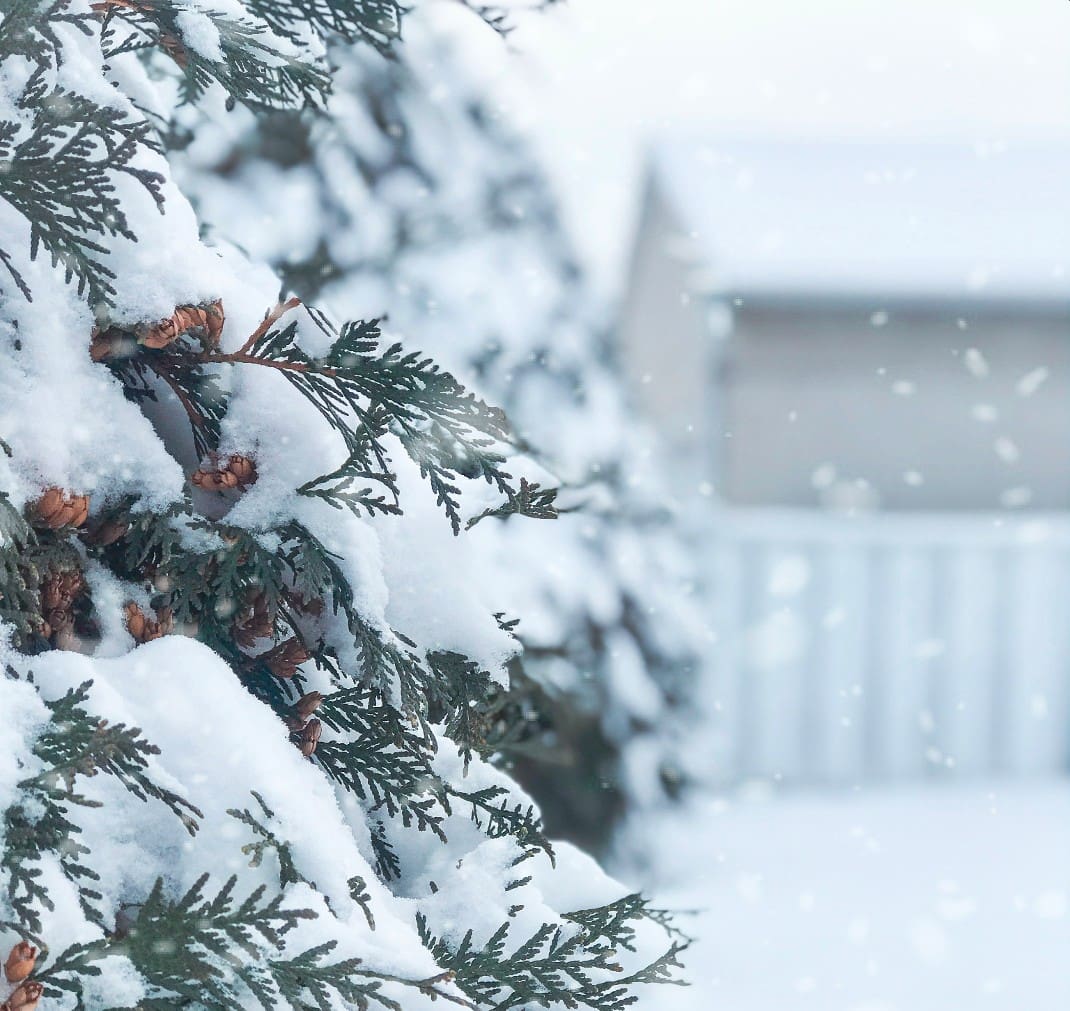
Whether you’re hunkering down or gearing up for the cold, it’s worth asking: do you need anti-desiccant spray in the winter?
As the first frosts settle in, it’s time to discuss a secret weapon in the gardening world: anti-desiccant spray. During the winter, our landscapes face different challenges, and the dry, cold air can be harsh on our beloved plants. So, do you need anti-desiccant spray in the winter? Keep reading as we answer.
If you’re wondering how to keep your outdoor space thriving during the cold months, Borst can help. Whether you’re a seasoned gardener or just starting, we’ll tailor our services to meet your specific needs. Get in touch with our team, and together, we’ll make this winter the season your garden truly thrives.
Contact Borst to discuss all your landscape design and maintenance needs. Let us do the work while you enjoy the results! Call (201) 730-4025 or complete our easy online form today.
What is an anti-desiccant spray?
Anti-desiccant spray, also known as antitranspirant, is a liquid solution that forms a protective film on the leaves of plants. This film helps reduce moisture loss by limiting the plant’s transpiration, which is how water evaporates from the leaves.
The primary purpose of using anti-desiccant spray in winter is to shield plants from moisture loss. The dry air, cold winds, and temperature fluctuations can lead to water loss through the leaves, causing dehydration. These sprays help create a barrier that prevents excessive water loss, helping plants stay hydrated.
The question remains: do you need anti-desiccant spray in the winter?
Like many things, it’s not a straightforward “yes” or “no.” Answering “Do you need anti-desiccant spray in the winter?” depends on several factors.
Consider plant types
First and foremost, the type of plants in your garden plays a significant role. While some plants, like evergreens and broadleaf evergreens, may benefit from the protective layer offered by anti-desiccant sprays, others, like deciduous trees and perennial flowers, may not require such protection.
Consider local climate
Another critical factor to consider is your local climate. In New Jersey, where winter is characterized by extreme cold and strong winds, anti-desiccant sprays may prove more valuable.
Consider plant age
You should also take the age of your plants into account. Young, vulnerable plants are more susceptible to winter stress and moisture loss. In this case, applying an anti-desiccant spray can be a prudent decision.
Here’s why the when is more important than the why
More than anything else, the timing of the application is essential. You may wonder, do you need anti-desiccant spray in the winter?
Recommended use is in late fall or early winter. Applying it before the harshest conditions set in allows the protective film to be in place when the worst of winter’s weather strikes.
Consider your gardening goals. If you’re aiming for a low-maintenance garden, these sprays can be a helpful tool to reduce the winter workload. They can provide extra protection for your plants, reducing the risk of winter damage.
Nonetheless, it’s essential to be cautious when using anti-desiccant sprays. Overapplication leads to problems, including inadequate airflow around the plants, which can cause disease. Always follow the manufacturer’s recommendations and instructions for proper use.
Every situation is unique
So, do you need anti-desiccant spray in the winter? Well, it depends! Consider your specific circumstances. If you decide to use it, be sure to apply it at the right time and in the correct manner to ensure that it’s effective in protecting your plants from the challenges of winter.
When in doubt, you can always call in the experts. At Borst Landscape & Design. We’re not just about creating stunning landscapes; we’re here to educate and empower you to care for your outdoor spaces year-round. If you’re looking to nurture your garden through the winter confidently, contact the experts today!
Call (201) 730-4025 or reach out via our website today!
Photo by Gino Castillo on Unsplash
